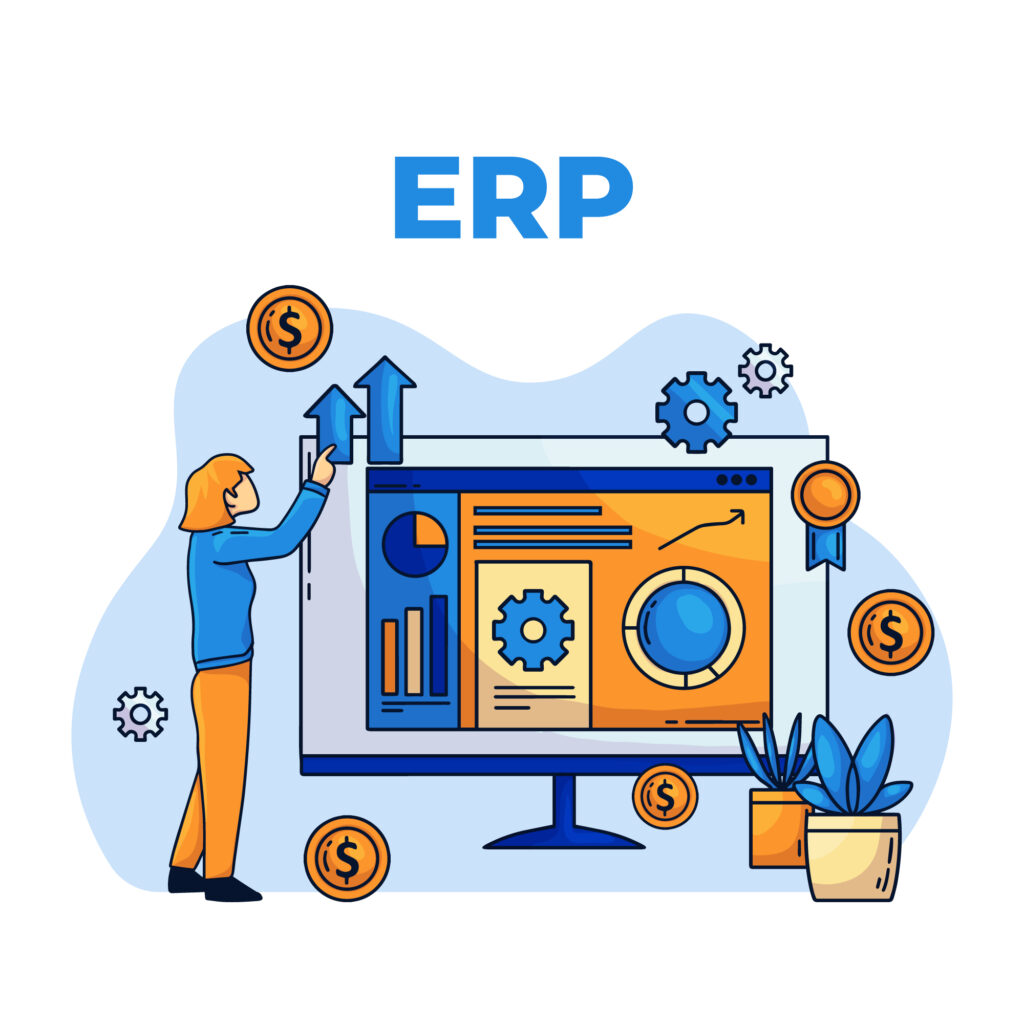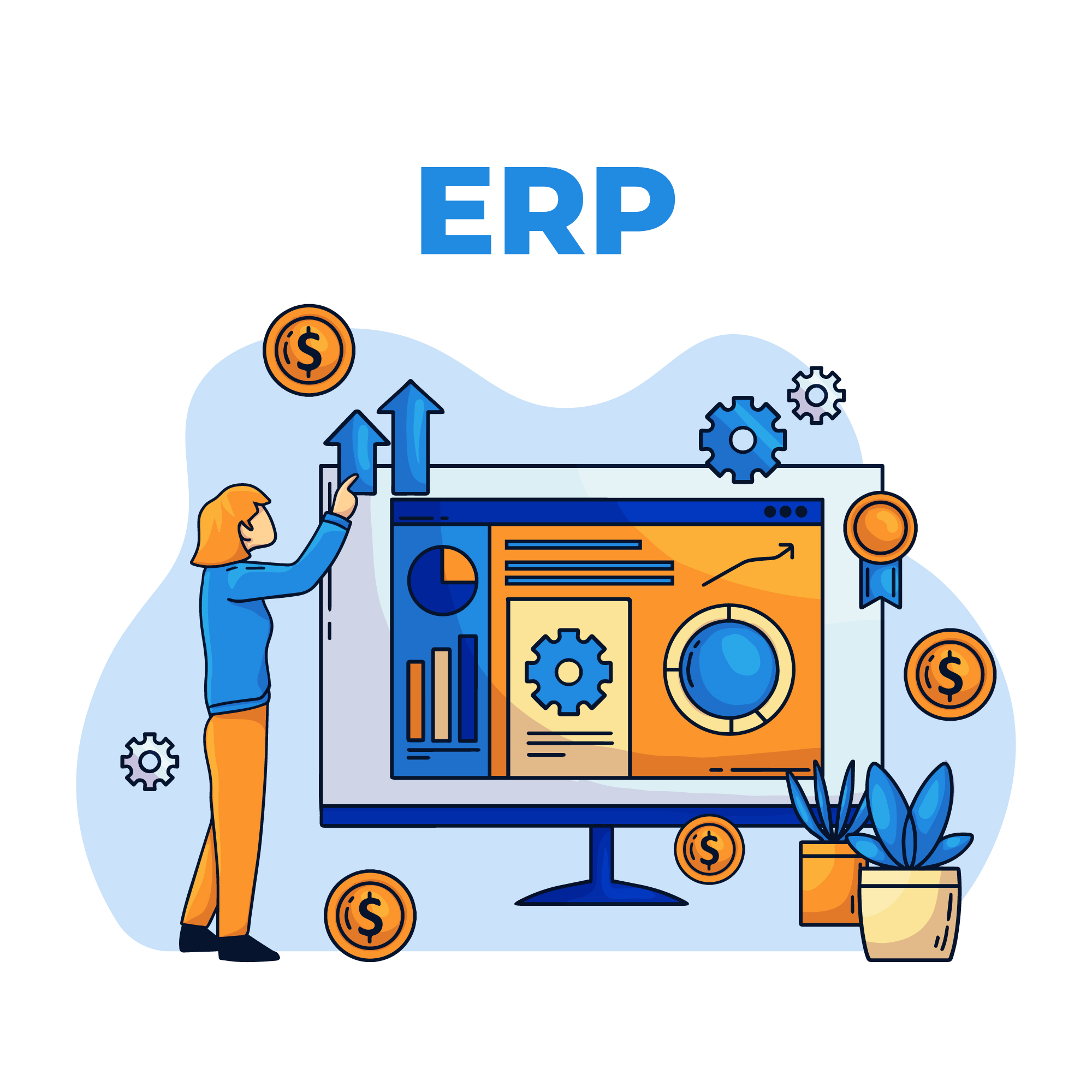In today’s fast-paced business environment, it’s important for companies to have the right tools to manage their resources effectively. This is where understanding ERP comes in. ERP is a software system that helps businesses manage their day-to-day operations, including inventory, accounting, human resources, and customer relationship management. In this article, we will provide an introduction to ERP and discuss its key benefits, components, and implementation process.

What is ERP?
ERP is a software system that integrates all aspects of a business, from finance and accounting to human resources and supply chain management. The system is designed to automate and streamline processes, increase efficiency, and provide real-time visibility into business operations. ERP is typically used by medium to large-sized businesses and can be customized to meet the specific needs of each organization.
Benefits of ERP
The benefits of implementing an ERP system are numerous, including:
Increased Efficiency: ERP automates manual processes and reduces the time required to complete tasks. This increases productivity and allows employees to focus on more strategic tasks.
Improved Accuracy: ERP provides a single source of truth for business data, reducing the likelihood of errors and ensuring that everyone has access to the same information.
Better Visibility: ERP provides real-time visibility into business operations, allowing management to make more informed decisions.
Enhanced Collaboration: ERP enables departments to share data and communicate more effectively, improving collaboration across the organization.
Scalability: ERP systems can be customized to meet the specific needs of each organization and can scale as the business grows.
Components of ERP
ERP consists of several components that work together to manage various aspects of a business. The key components of ERP include:
Finance and Accounting: ERP provides tools to manage financial transactions, including accounts payable, accounts receivable, general ledger, and cash management.
Human Resources: ERP manages employee information, including payroll, benefits, performance evaluations, and training.
Supply Chain Management: ERP helps businesses manage their supply chain, from purchasing and inventory management to order fulfillment and shipping.
Customer Relationship Management: ERP provides tools to manage customer data, including sales orders, customer service requests, and marketing campaigns.
Implementation Process
The implementation process for ERP can vary depending on the specific needs of each organization. However, there are several key steps that most organizations will follow:
Planning: The planning phase involves identifying the goals and objectives of the ERP implementation and creating a project plan. This includes identifying key stakeholders, establishing a budget, and determining a timeline for the project.
Design: During the design phase, the ERP system is customized to meet the specific needs of the organization. This includes configuring the system and designing workflows and business processes.
Testing: Before the ERP system is deployed, it must be tested to ensure that it is working as expected. This includes testing functionality, data migration, and integration with other systems.
Deployment: Once the system has been tested and approved, it can be deployed. This involves installing the system, migrating data, and training users.
Maintenance: After the system is deployed, it must be maintained to ensure that it continues to function properly. This includes regular updates and maintenance, as well as ongoing support for users
Understanding ERP is essential for businesses looking to improve efficiency, accuracy, and collaboration. By integrating all aspects of a business, ERP provides real-time visibility into operations and allows for better decision-making. The benefits of implementing an ERP system are numerous, and the components of ERP cover all aspects of a business, from finance and accounting to human resources and supply chain management. While the implementation process can be complex, the rewards are well worth the effort.
Simply CRM is a cloud-based customer relationship management (CRM) software that can be used as an enterprise resource planning (ERP) solution. Simply CRM is designed to help businesses manage their entire business processes, including sales, marketing, customer service, inventory management, and more.
Here are some of the ways Simply CRM can be used as an ERP:
Sales Management:
Simply CRM provides a comprehensive sales management module that helps businesses manage their entire sales process, from lead generation to closing deals. The sales module includes features such as lead tracking, sales forecasting, sales pipeline management, and sales analytics, which can help businesses streamline their sales processes.
Marketing Automation:
Simply CRM offers powerful marketing automation features that enable businesses to create and execute targeted marketing campaigns across multiple channels. The marketing module includes features such as email marketing, social media marketing, and campaign tracking, which can help businesses automate their marketing processes and drive more leads and sales.
Customer Service:
Simply CRM includes a customer service module that enables businesses to manage customer inquiries, complaints, and support requests. The customer service module includes features such as ticket management, knowledge base management, and customer feedback, which can help businesses provide excellent customer support and improve customer satisfaction.
Inventory Management:
Simply CRM also includes an inventory management module that enables businesses to manage their inventory levels and track their stock movements. The inventory management module includes features such as stock alerts, reorder management, and purchase order management, which can help businesses optimize their inventory levels and reduce the risk of stockouts.
Reporting and Analytics:
Simply CRM includes powerful reporting and analytics capabilities that enable businesses to track their performance across all their business processes. The reporting and analytics module includes features such as custom dashboards, data visualization, and real-time reporting, which can help businesses make data-driven decisions and improve their overall performance.
Overall, Simply CRM is a powerful ERP solution that can help businesses manage their entire business processes, from sales and marketing to customer service and inventory management. Its cloud-based platform, intuitive user interface, and robust feature set make it an ideal choice for businesses of all sizes looking to streamline their operations and improve their bottom line.
Additional reading about ERP:




